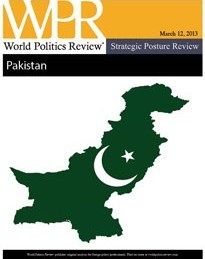
On March 15, U.S. Secretary of Defense Chuck Hagel announced that the Obama administration would shift tactics on ballistic missile defense (BMD). Specifically, the U.S. will shift its focus from overseas, regional ballistic missile defense toward greater protection of the homeland. However, while the political symbolism of this switch may be positive, the strategic and military consequences may well be counterproductive. As a result, the move looks more like short-term politicking than a new approach to strategic thinking. To some observers, Hagel’s announcement was a significant and welcome change in policy. Under the new plan, the U.S. Missile Defense Agency […]





